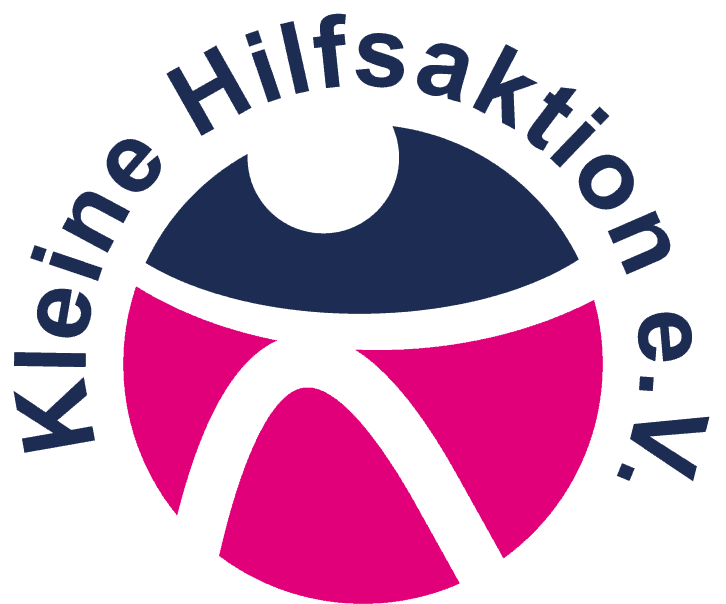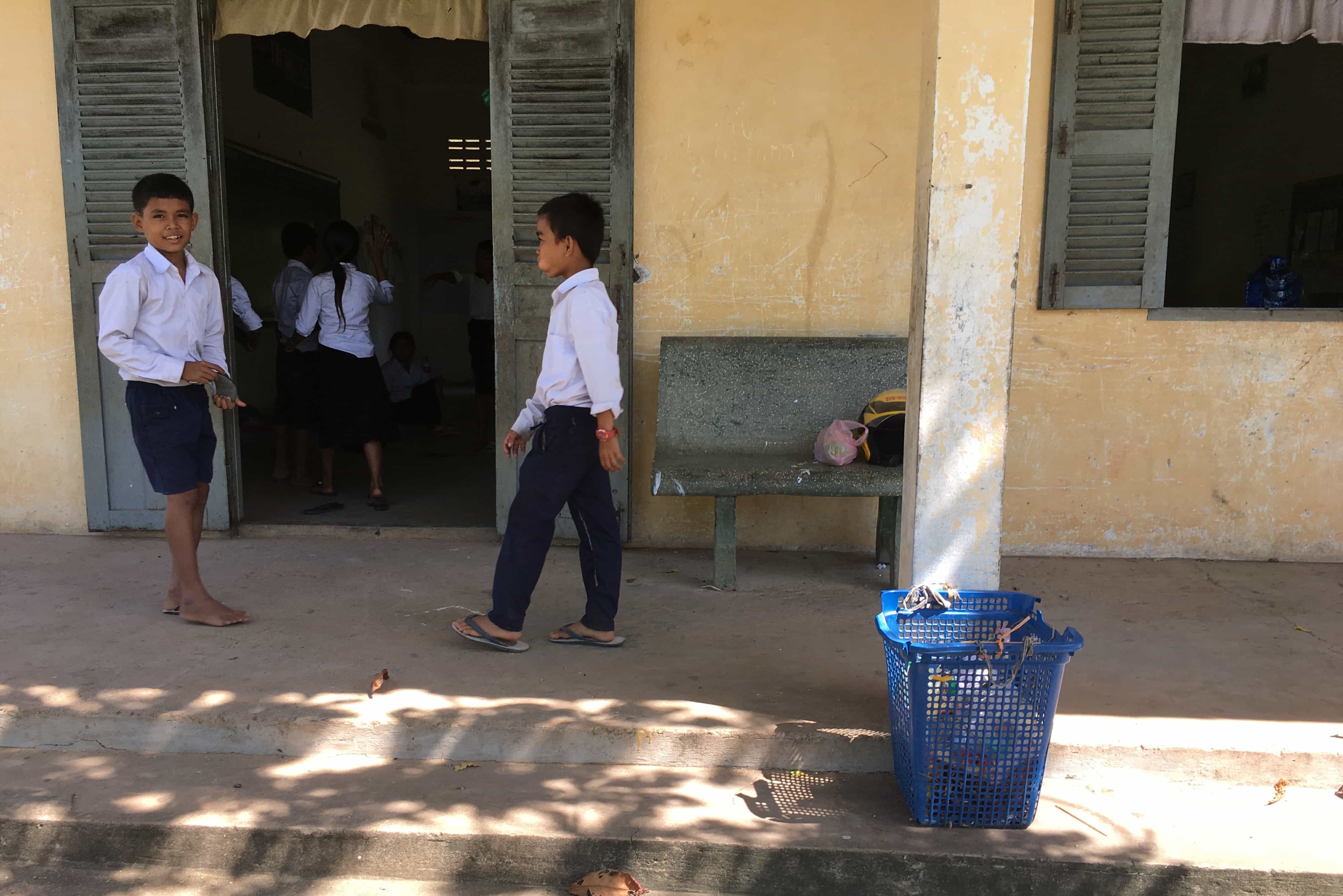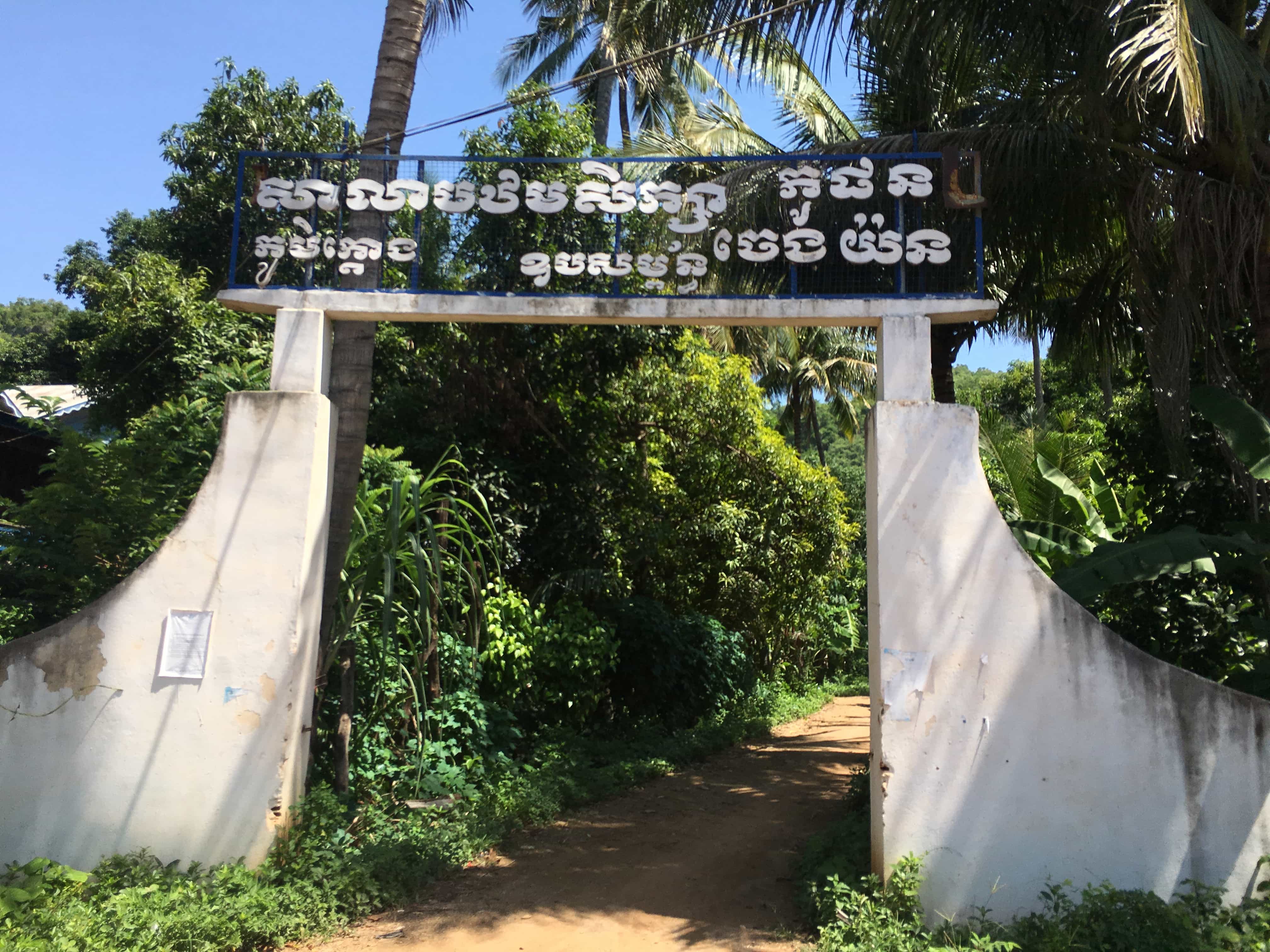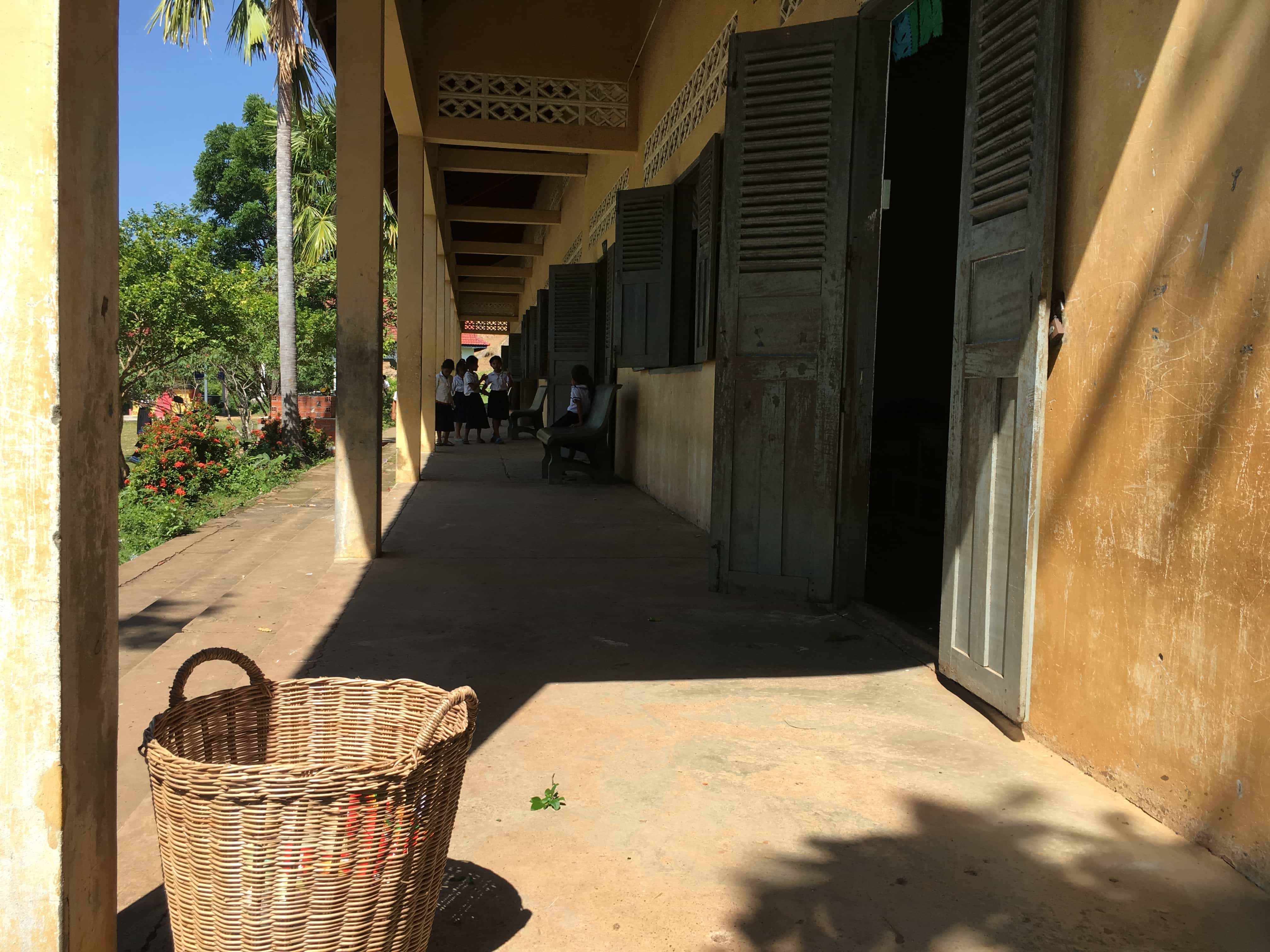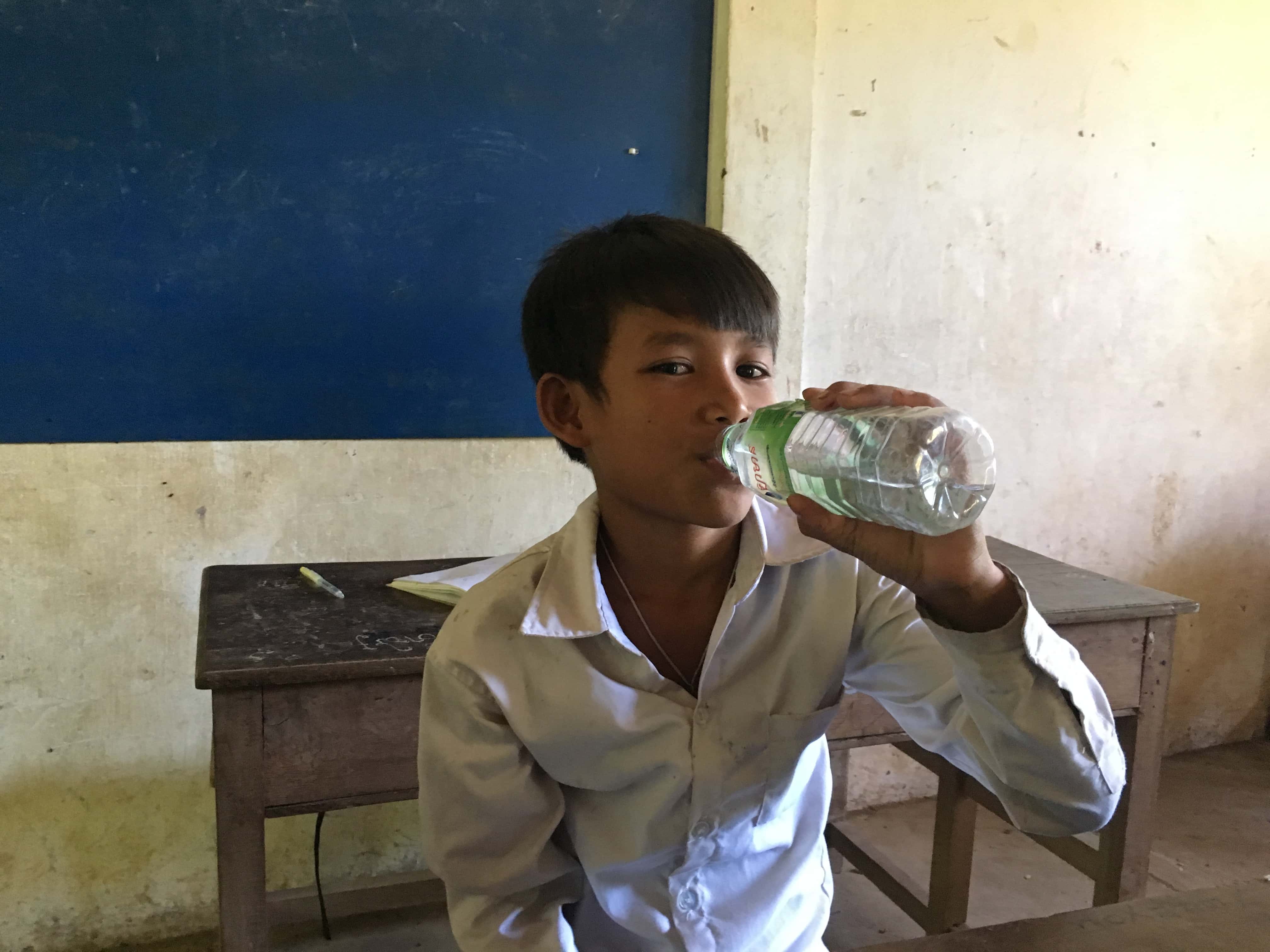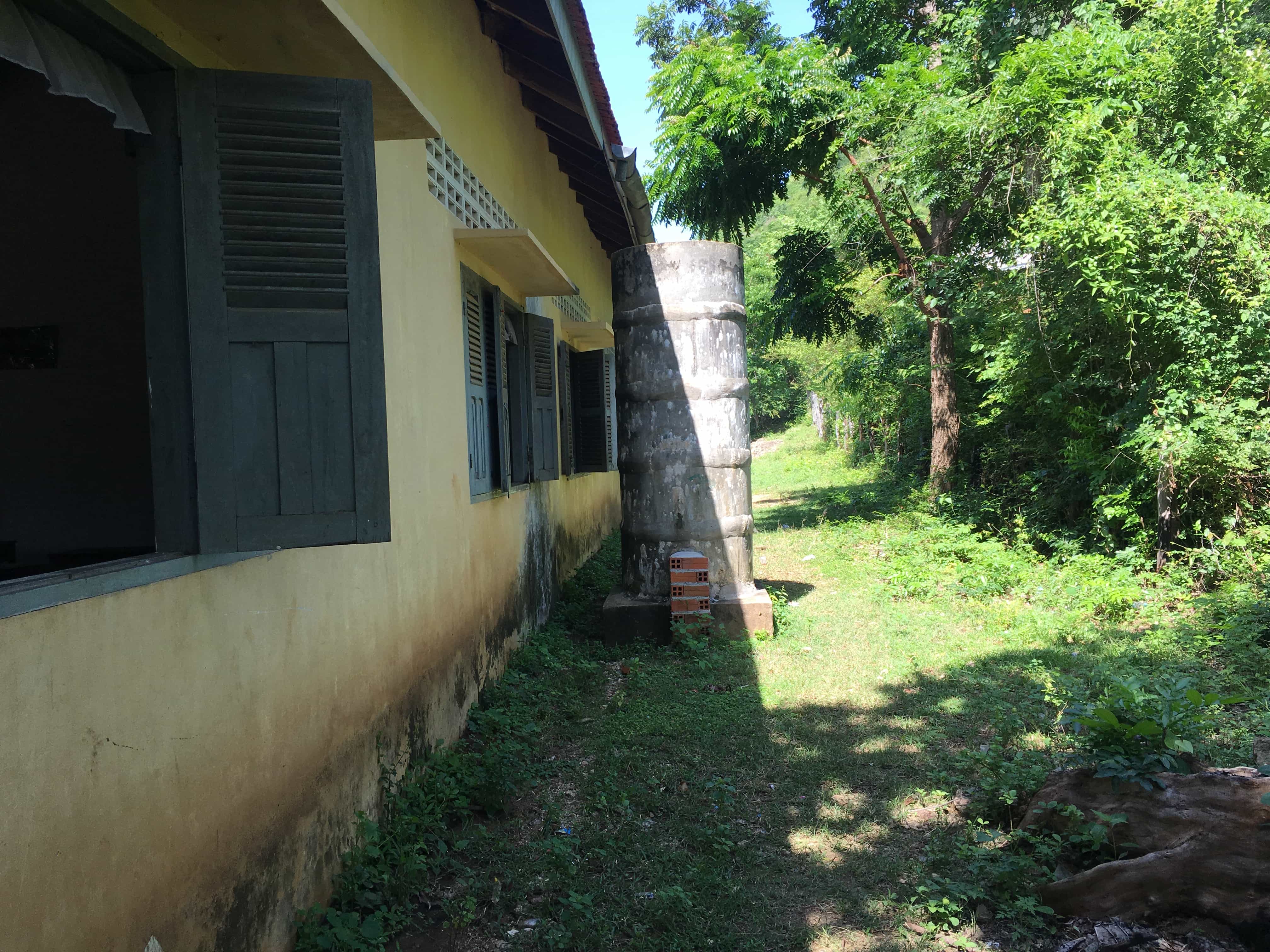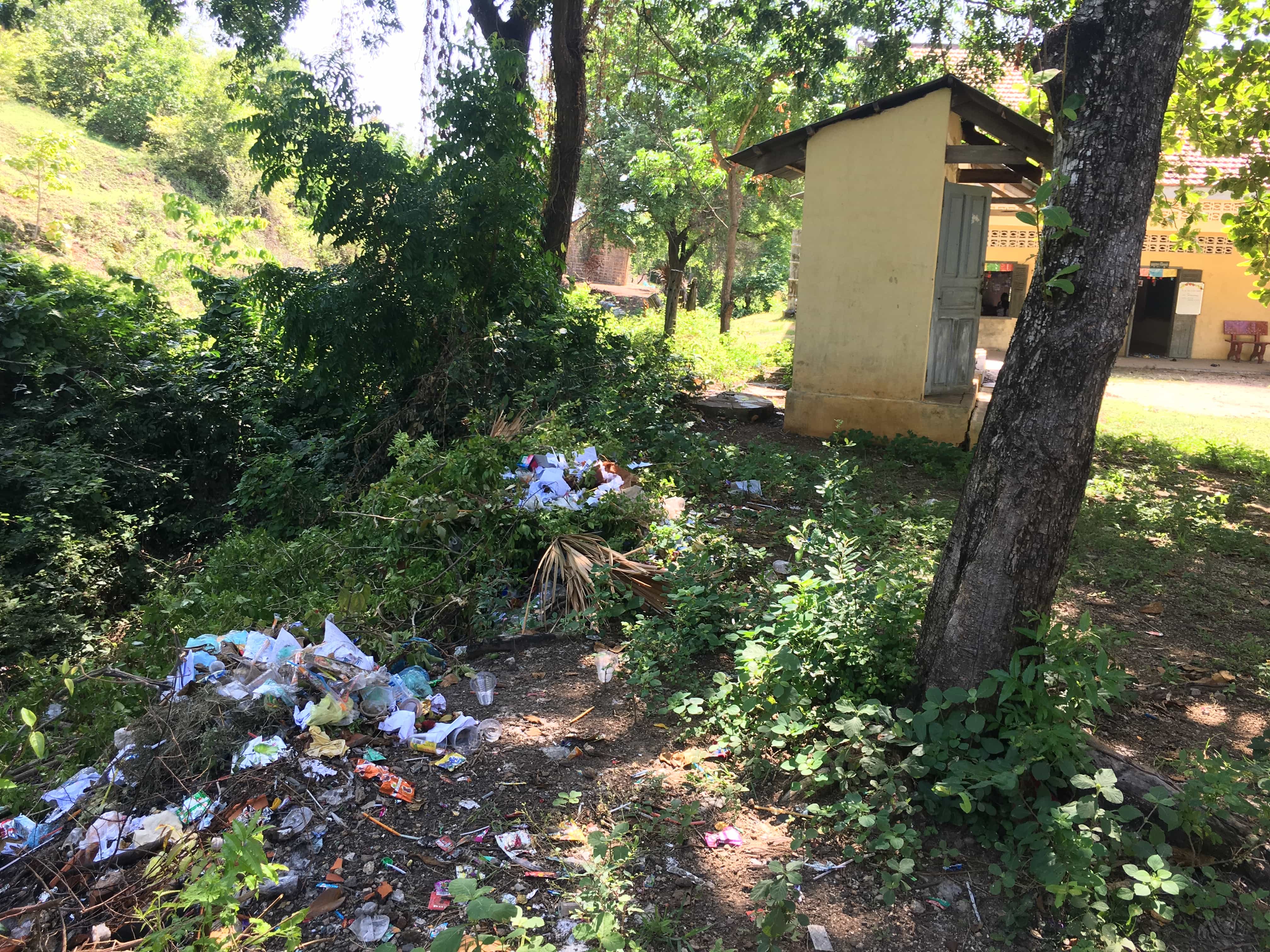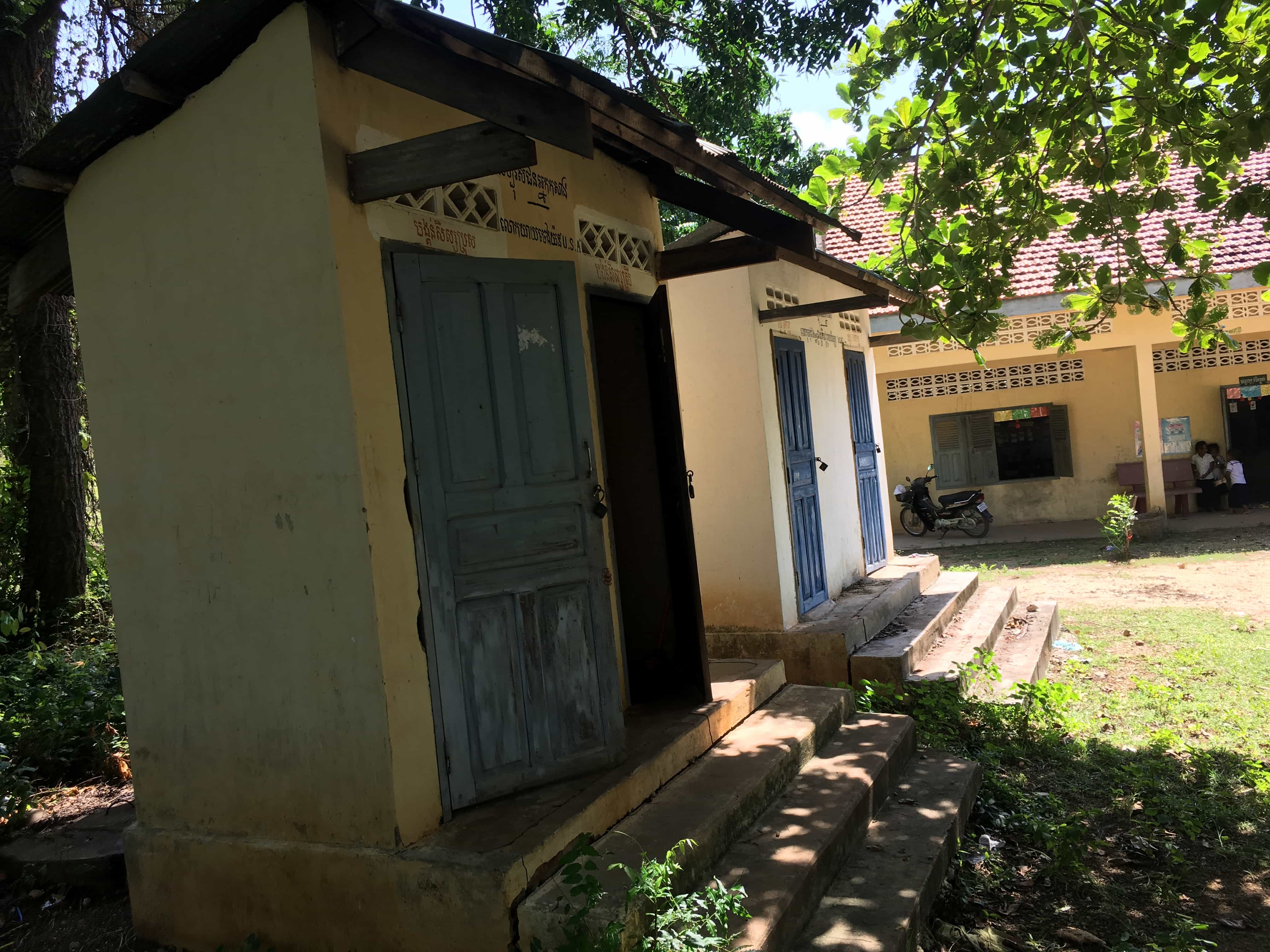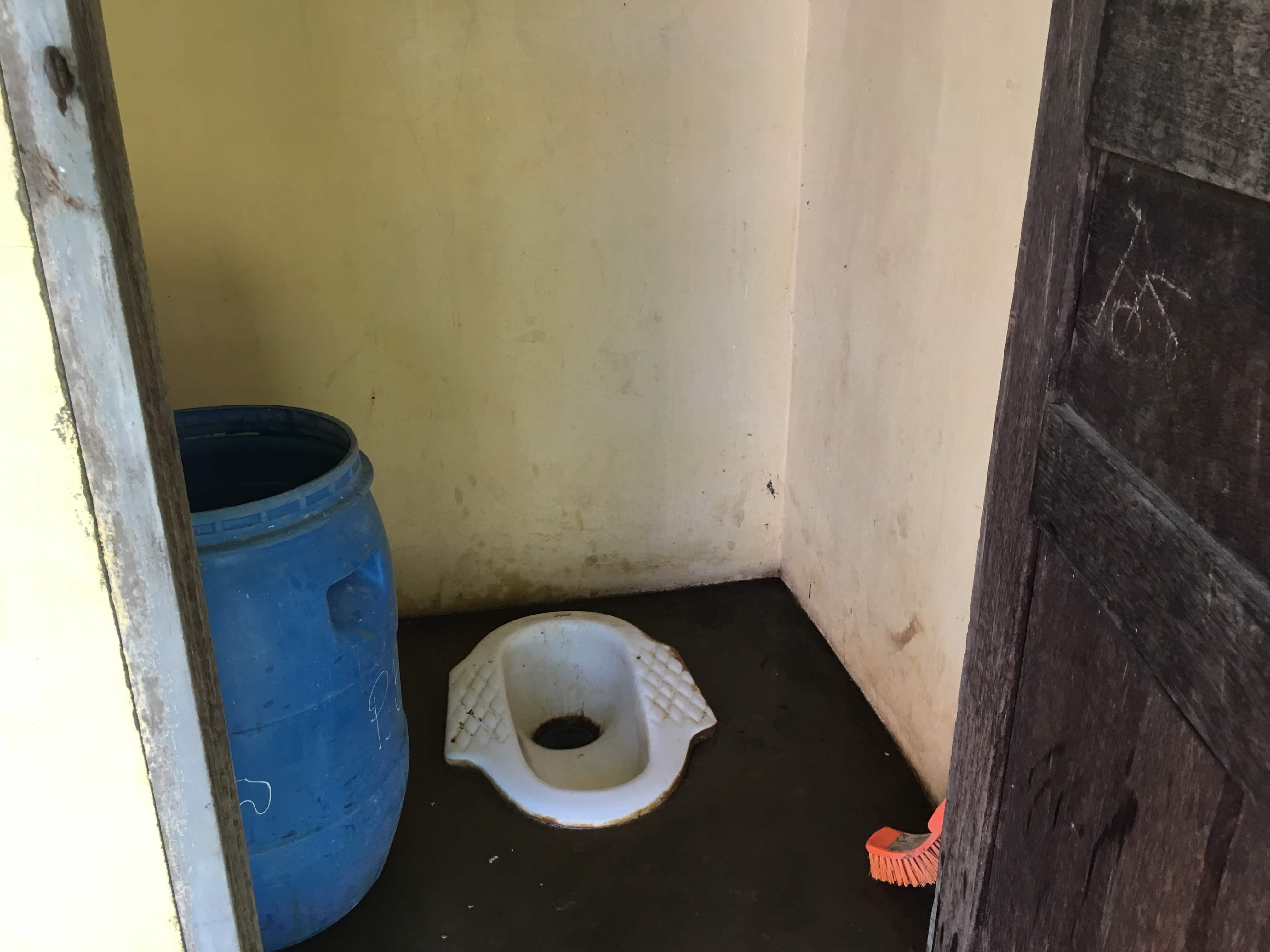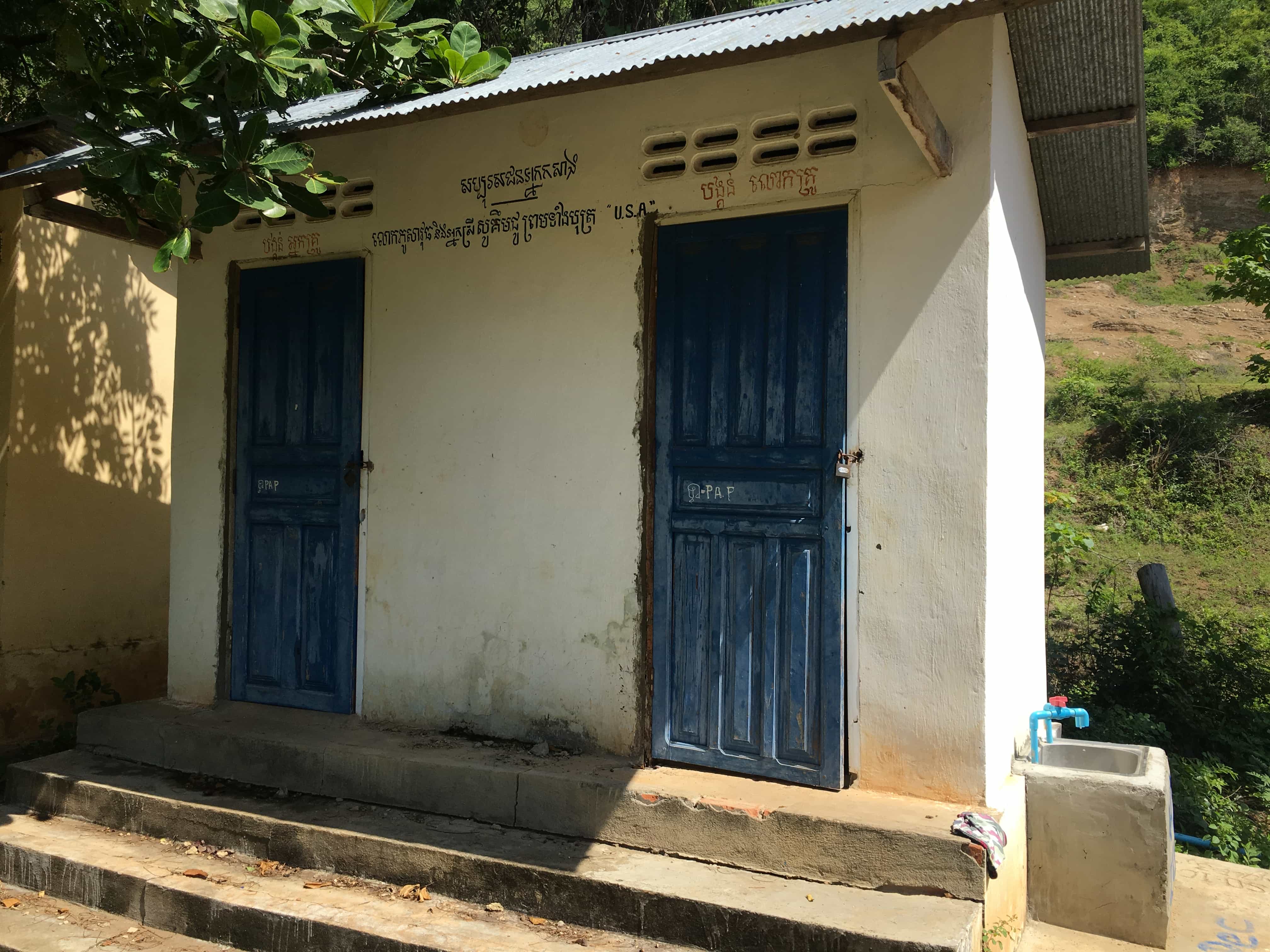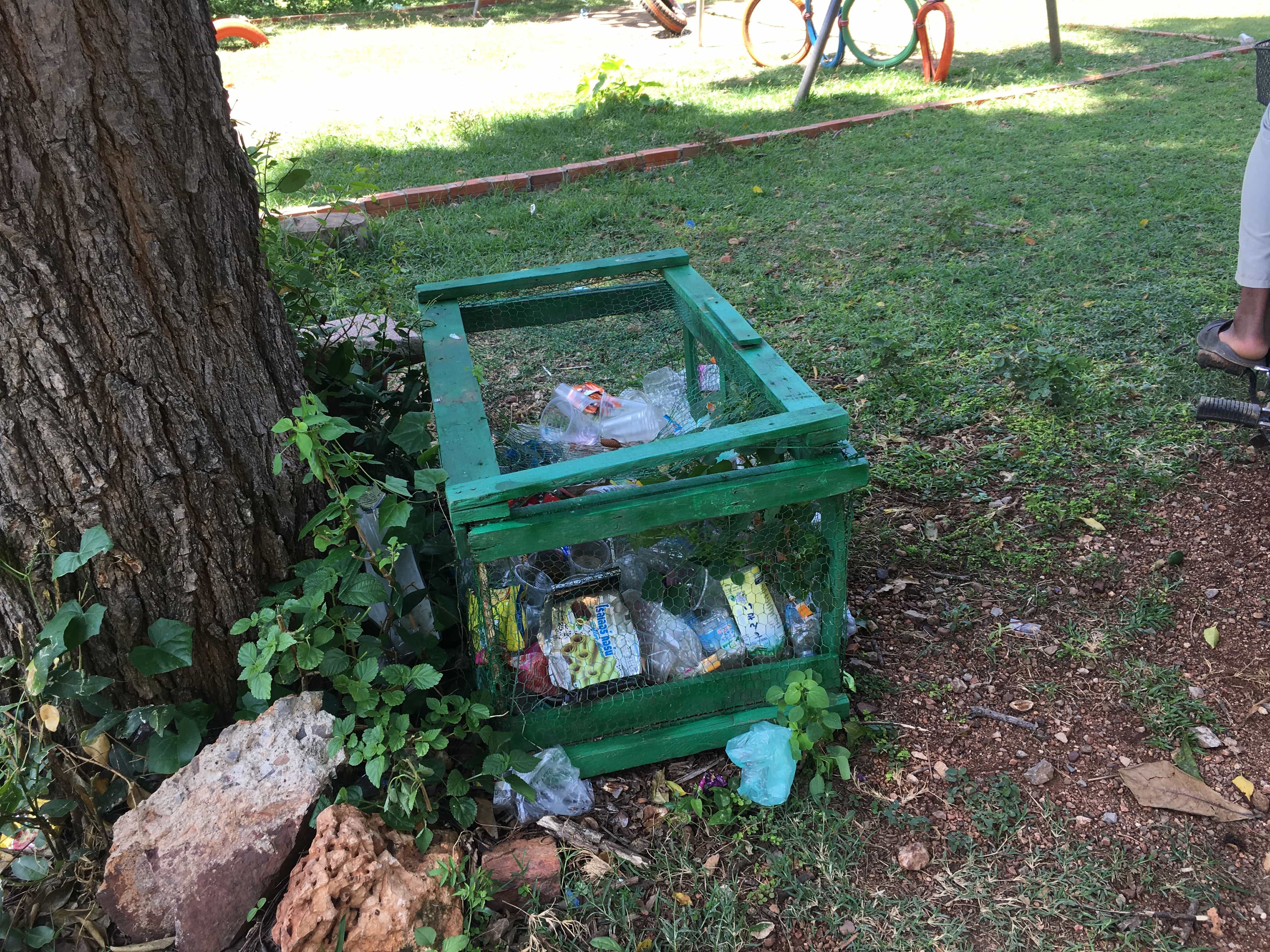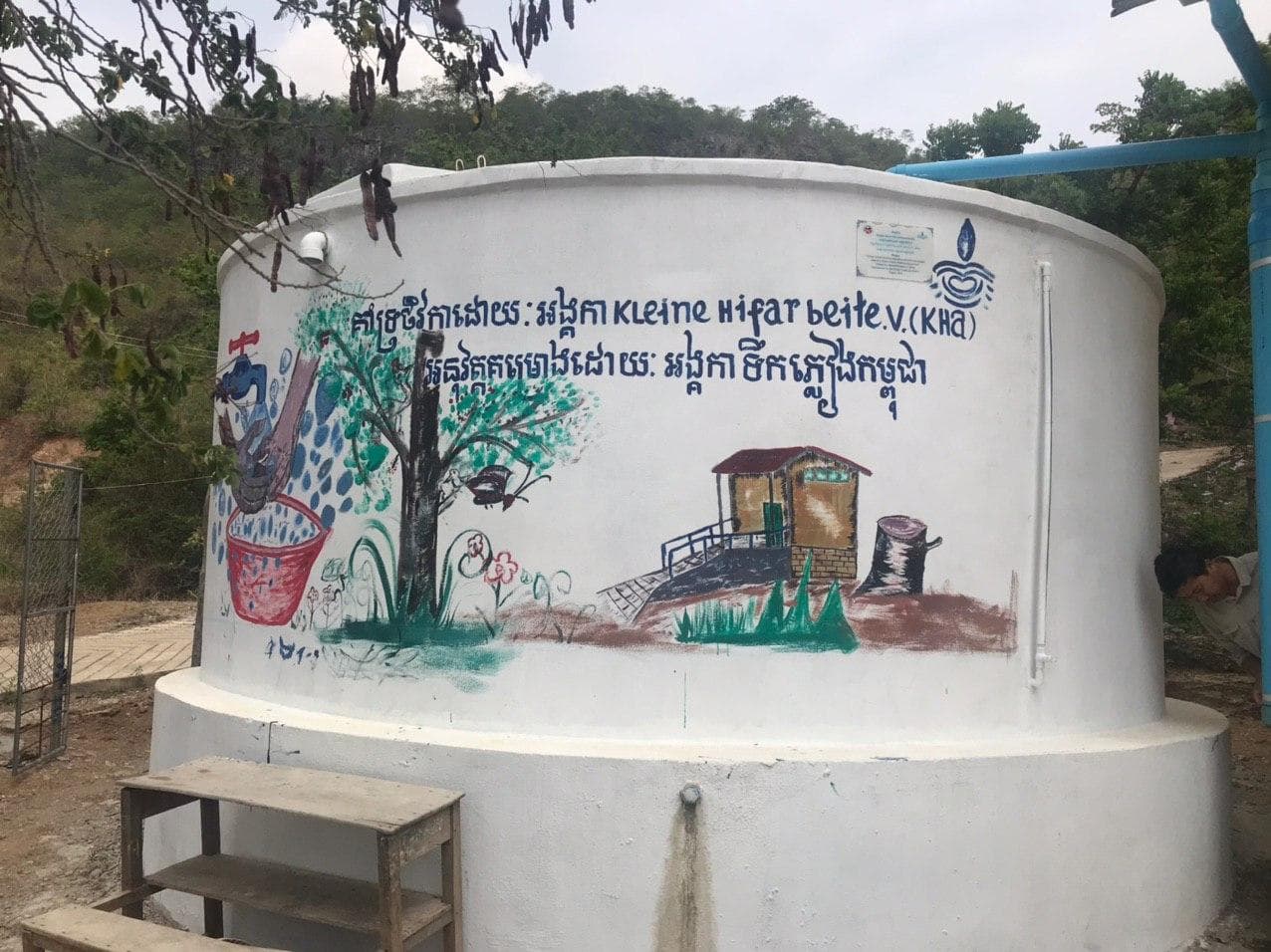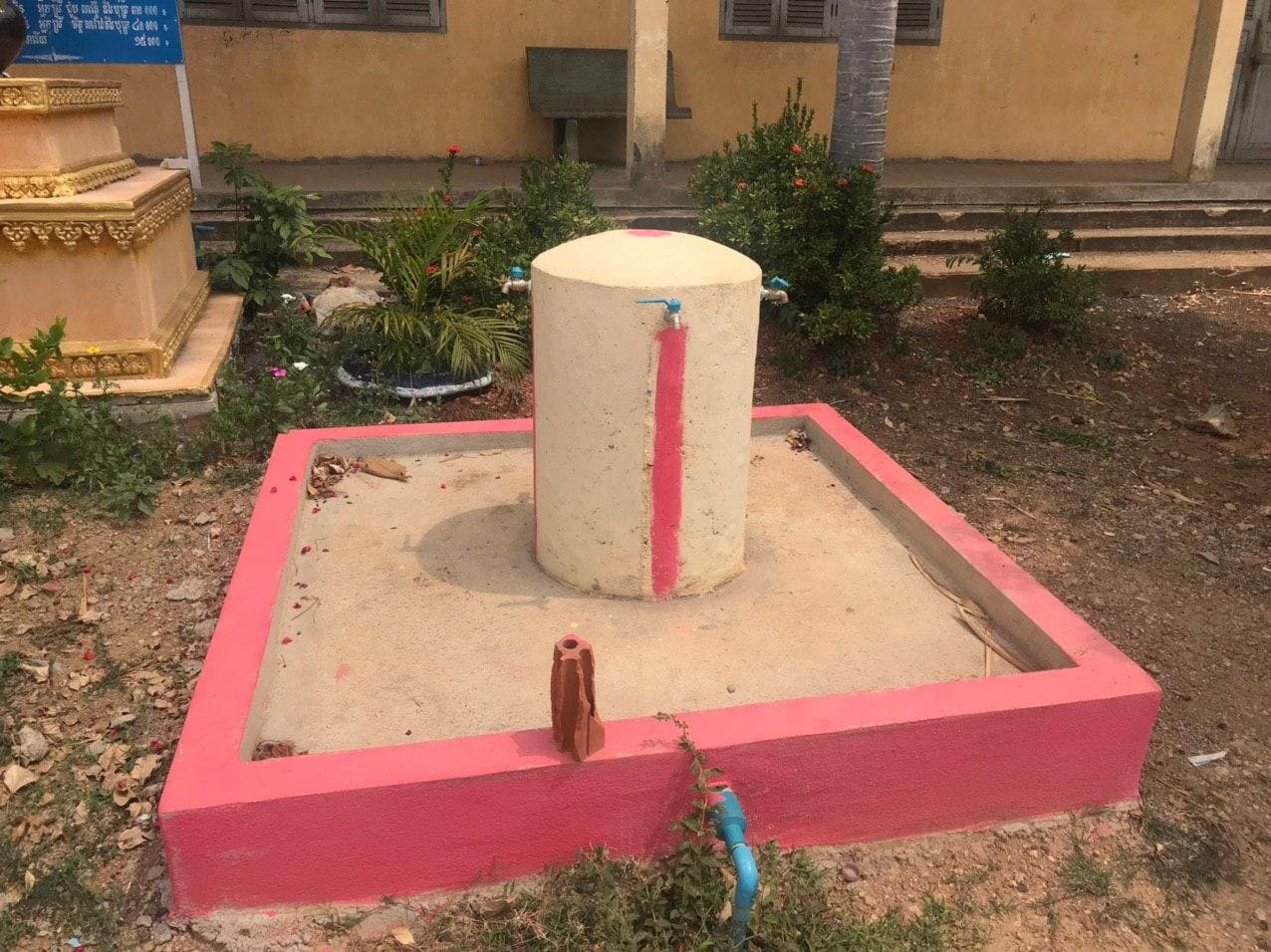Phnom Kdoang Primary School
School history
Kdoang Primary school is located in Phnom Kdoang village, Phnom Sampov commune, Banan district, Battambang province. It’s 14 km from Banan’s district capital. The school was built in 2001 and is comprised of one concrete building. There are 123 children attending the school.
State of the school before the conversion
Power supply
None available
Water resources, incl. WaSH
There are 5m3 of rainwater storage capacity (which is broken), a pump well and two latrine buildings containing a total of 4 toilets, along with a small hand washing sink with two spouts. In the rainy season the school uses water from the pump well for the latrine and handwashing, as well as for cleaning the latrine and sink. In the dry season the only water source is the pump well. But the pump well dries out.
Condition of the latrines
The structures are in good condition and the latrines are well cared for.
Waste Management
There are garbage cans in each of the rooms with a few garbage receptacles spread around the school grounds. There is some plastic and garbage on the grounds, but it is not too bad. However, garbage will need to be disposed in a better way, as it is often allowed to sit too long before burning.
General condition of the school (cleanliness / maintenance)
There are duty rosters for cleaning the latrines and RRHs, but nothing for other WASH maintenance at the school, which will need to improve.
Upgrading the school
Planned Measures
- Rainwater collector, including foundation and rainwater delivery system: 1 pcs. with 35,000 l
- Hand washing stations: 3 pcs.
- Latrine (1 toilet): 1 pcs.
- Ramp: access for students with disabilities to the classrooms and toilets
Teacher training
- Project organization and planning
- WASH use and maintenance
- Waste Management in cooperation with Plastic Free Cambodia
Water analysis
All drinking water will be tested to ensure that the drinking water is safe and clean
Monitoring & Evaluation
Ongoing
Cost per capita / child for an effective, long-lasting and sustainable implementation of basic living conditions 117,18 €.
Date: September 14, 2017
Update: June 2019
Detailed project costs
| No. | Description | Costs in € |
|---|---|---|
| 1 | 35,000 L cistern + base + taps + gutter + pipes | 4,500 |
| 2 | 3 x hand washing stations | 750, – |
| 3 | toilet buildings (handicapped accessible) | 1,900 |
| 4 | support bars | 350, – |
| 5 | ramp to the classroom | 500, – |
| 6 | water test tank | 360, – |
| 7 | teaching materials | 334, – |
| 8 | teacher training | 280, – |
| 9 | training for schoolchildren | 840, – |
| 10 | pass on ceremony | 100, – |
| 11 | Maintenance work training | 760, – |
| 12 | follow-up | 720, – |
| 13 | RWC personnel costs, transport, administration | 1709.10 |
| 14 | kHA administrative costs and other (10%) | 1310.31 |
Conclusion
With a total budget of only € 14,413, the hygienic learning and working conditions for 123 pupils, 7 teachers and other school staff could be improved effectively, long-term and sustainably.
The WaSH project of the Phnom Kdoang elementary school was implemented on budget and all the specified goals were achieved. The quality and quantity of the WaSH infrastructure and technologies installed are continuously checked by the local organization Rainwater Cambodia, the partner of the small aid operation.
Project coordinates: 13.013611, 103.098472
Emergence and meaningfulness – WaSH (water sanitary hygiene) project
During our trip in January / February 2013, we became aware of the disastrous conditions of a school near Banan. There is no drinking water, no hand washing facility and no toilet. The children are forced to releive themselves in the bushes behind the school. It is not hard to imagine which health dangers emanate from this condition.
When Bong and I visit the school together with our team, we ask the children who would like to have something to drink. About 30% of the small children have some water, bottled in an old plastic bottle, cloudy and unimaginably dirty. When a little girl proudly pulls out her bottle to drink from it, I suddenly feel the need to knock the bottle out of her hands. It brings tears to my face, especially as I myself have a little daughter at home. The idea that she would have to drink this broth and then make her emergency (95% diarrhea) behind the school, all without toilet paper and without the option to wash your hands …. this idea will not leave my mind for days.
We had to work out a plan of how we could change this. Back in Germany, I had the opportunity to present this project to the Rotary Club „Willich“. My listeners quickly realized that with little money, many children can be sustainably helped. The projects are sustainable, effective and almost unbeatable in relation to the budget needed and the quality / quantity of the aid. We are building a pilot project and one of our most successful programs has its origins: WASH.
Today, four years later, in cooperation with the two Austrian organizations „Wasser-für-die-Welt“ and „Last-Hope“, the Rotary Clubs „Willich“ and “Neuss”, we have launched the „moeglichkeitenschenken“ initiative Partner agency „springer f3“ and, of course, our partner organization „Bareebo“ has already converted 21 schools and thus helped around 3,000 children.
Talk to us and become a development worker. We have schools that fit into your budget and you can help there effectively, concretely and sustainably.
Details
Status: Project completed
Budget: 14.413 €
Sponsor: United VARs
